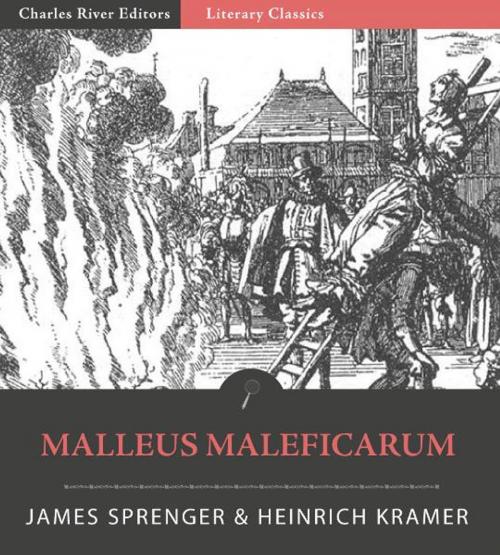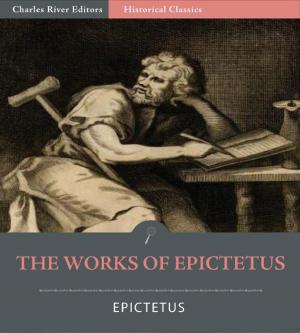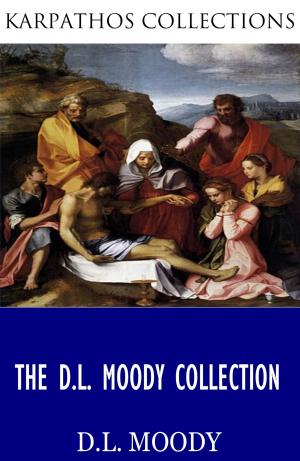| Author: | Heinrich Kramer & James Sprenger | ISBN: | 9781619822108 |
| Publisher: | Charles River Editors | Publication: | February 8, 2012 |
| Imprint: | Language: | English |
| Author: | Heinrich Kramer & James Sprenger |
| ISBN: | 9781619822108 |
| Publisher: | Charles River Editors |
| Publication: | February 8, 2012 |
| Imprint: | |
| Language: | English |
James Sprenger (also Jacob, Jakob, Jacobus, 1436/1438 6 December 1495) was a German priest. He was born in Rheinfelden. He was named in the 1484 papal bull Summis desiderantes of Pope Innocent VIII. Popular opinion makes Sprenger the co-author of the Malleus Maleficarum. All editions after 1519 named him as Heinrich Kramer's collaborator. It has been claimed that Sprenger was not interested in witches and that he cannot be linked to any witch trial. His personal relationship to Kramer was acrimonious and Sprenger used his powerful position whenever he could to make Kramers life and work as difficult as possible. Scholars now believe that he became associated with the Malleus Maleficarum largely as a result of Kramer's wish to lend his book as much official authority as possible. Heinrich Kramer (c. 1430, Schlettstadt, Alsace1505, Brünn or Olmütz) also known under the Latinized name Henricus Institoris, was a German churchman and inquisitor. Born in Schlettstadt, Alsace, he joined the Dominican Order at an early age and while still a young man was appointed Prior of the Dominican house of his native town. In 1485 he drew up a treatise on witchcraft which was incorporated in the Malleus Maleficarum (literally "The hammer of malefactresses (wrongdoing women - i.e. witches)"). Kramer failed in his attempt to obtain endorsement for this work from the top theologians of the Inquisition at the Faculty of Cologne, and they condemned the book as recommending unethical and illegal procedures, as well as being inconsistent with Catholic doctrines of demonology. Kramer's claimed endorsement from four of the professors may have been forged. He was denounced by the Inquisition in 1490. The Malleus Maleficarum (Latin for "Hammer of the Witches", or "Der Hexenhammer" in German) is a famous treatise on witches and was first published in Germany in 1487.The main purpose of the Malleus was to attempt to systematically refute arguments claiming that witchcraft does not exist, discredit those who expressed skepticism about its reality, to claim that witches were more often women than men, and to educate magistrates on the procedures that could find them out and convict them. Kramer was denounced by the Inquisition in 1490. This edition of Malleus Maleficarum is specially formatted with a Table of Contents and medieval depictions of witches.
James Sprenger (also Jacob, Jakob, Jacobus, 1436/1438 6 December 1495) was a German priest. He was born in Rheinfelden. He was named in the 1484 papal bull Summis desiderantes of Pope Innocent VIII. Popular opinion makes Sprenger the co-author of the Malleus Maleficarum. All editions after 1519 named him as Heinrich Kramer's collaborator. It has been claimed that Sprenger was not interested in witches and that he cannot be linked to any witch trial. His personal relationship to Kramer was acrimonious and Sprenger used his powerful position whenever he could to make Kramers life and work as difficult as possible. Scholars now believe that he became associated with the Malleus Maleficarum largely as a result of Kramer's wish to lend his book as much official authority as possible. Heinrich Kramer (c. 1430, Schlettstadt, Alsace1505, Brünn or Olmütz) also known under the Latinized name Henricus Institoris, was a German churchman and inquisitor. Born in Schlettstadt, Alsace, he joined the Dominican Order at an early age and while still a young man was appointed Prior of the Dominican house of his native town. In 1485 he drew up a treatise on witchcraft which was incorporated in the Malleus Maleficarum (literally "The hammer of malefactresses (wrongdoing women - i.e. witches)"). Kramer failed in his attempt to obtain endorsement for this work from the top theologians of the Inquisition at the Faculty of Cologne, and they condemned the book as recommending unethical and illegal procedures, as well as being inconsistent with Catholic doctrines of demonology. Kramer's claimed endorsement from four of the professors may have been forged. He was denounced by the Inquisition in 1490. The Malleus Maleficarum (Latin for "Hammer of the Witches", or "Der Hexenhammer" in German) is a famous treatise on witches and was first published in Germany in 1487.The main purpose of the Malleus was to attempt to systematically refute arguments claiming that witchcraft does not exist, discredit those who expressed skepticism about its reality, to claim that witches were more often women than men, and to educate magistrates on the procedures that could find them out and convict them. Kramer was denounced by the Inquisition in 1490. This edition of Malleus Maleficarum is specially formatted with a Table of Contents and medieval depictions of witches.















